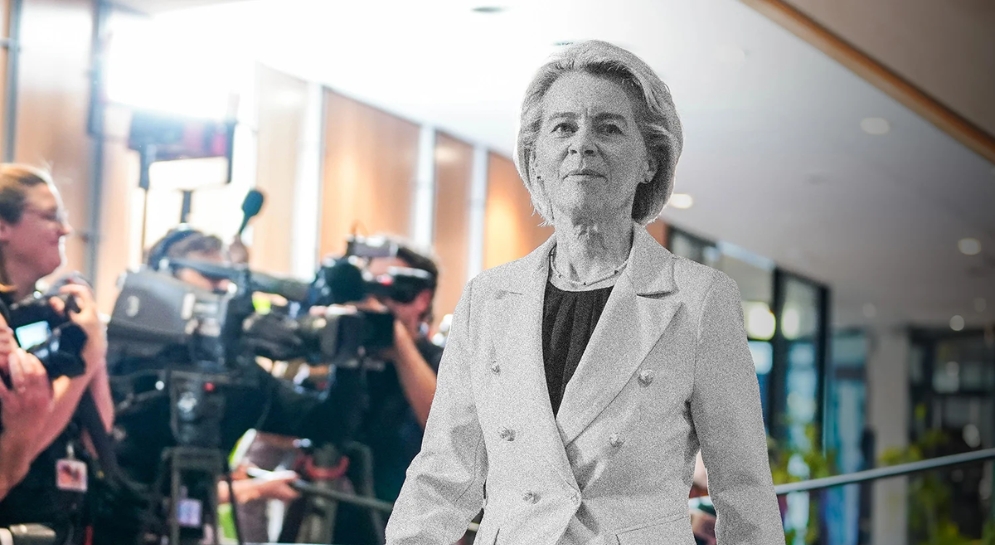At odds with the people – By Costas Christodoulides, Head of the International and European Affairs Department of AKEL
“Saturday 25th May 2013, “Haravgi” daily newspaper
It’s a great temptation, if not a demand and pressing need of the times, to evaluate that figure of 89% of the Cypriot people who today do not trust the European Union. This figure is taken from the public opinion poll published by the “Kathimerini” newspaper.
In my opinion, this opinion expressed by the people is not fabricated; it is the result of life experience itself.
It was not created by the political parties. All the parties view the EU in a positive light, whereas AKEL is the only Party which has always been criticised by the rest of the political parties that it is negative towards the policies implemented by the EU or to the EU itself. However no party by itself didn’t all of a sudden “convince” the overwhelming majority of the Cypriot people. All the mass media and other institutions stand unequivocally in favour of the European Union. I don’t believe anyone needs any proof of this fact.
Consequently, the people drawing from their own experience today consider that the EU should not be trusted. This is in sharp contrast to those forces who pin with spectacular devotion all their hopes entirely on the European Union.
We won’t claim that this vindicates AKEL, its own positions and policies. However, this should at least generate reflection among those who for many years argued that within the EU Cyprus is an equal member, and that the policies of the EU – even when they downgrade the position of working people and the vulnerable groups of the population – are all being implemented for our own “benefit”. When Cyprus joined the European Monetary Union it is still now fresh in our memories how the political parties of right wing DISY party, the centre party DIKO and socialist EDEK party were far too easily stating that Cyprus would strengthen its position, that we are joining the hard currency core group of the EMU and that we would prosper and our economy would improve. The DISY party in particular was stressing that it enjoys “the trust of our EU partners” and that the Government Spokesman could not comprehend even holding a discussion by the people on the Eurozone. Isn’t such a position at odds with the interests and will of the people?
Today this philosophy has collapsed in the eyes of the Cypriot people. Perhaps it has also collapsed in the eyes of millions of people all over the EU member states. In Spain for example, a country suffering from its own domestic and European Memoranda, 72% of the people do not trust the EU. This is a natural development. At a time when unemployment exceeds 26 million people in the EU and reaches up to 20 million unemployed people in the Eurozone countries, the EU is calling for more privatisations and less state intervention and role. It is calling for more deregulated labour relations with dismissals almost arbitrary. Whilst poverty has risen to 24%, that is to say one in four of the population in the EU during 2011, the Brussels Directorate decides that adjustment must be imposed on working people through cuts in order to boost the competitiveness of businesses, namely to cut labour costs and in so doing increase poverty.
What is the situation with wealth and the rich? The percentage of profit of business corporate giants in the Eurozone, in the Economic and Monetary Union was almost 39% in 2001. Today, indeed in the midst of a deep capitalist crisis, they have almost risen to 38%. The profit of big businesses and enterprises in the Eurozone has fallen by only 1%.
More specifically in Germany the profits of the country’s monopolies have multiplied. The 10 biggest giant businesses had assets worth 3.8 trillion dollars in 2005. This property corresponds to roughly one fourth of the GDP of the entire European Union, which according to the figures published by “Eurostat” is estimated at 12.9 trillion Euros. With regards the Eurozone, the strength of these 10 German companies is over one third of the total GDP which for 2012 does not exceed 9.5 trillion. Furthermore, the property assets of these 10 conglomerates alone surpass the GDP of Germany which for 2012 stood at 2.6 trillion Euros.
How difficult is it for certain circles and forces to admit that the policies and orientations of the European Union, the EMU itself and the institutional or better still the “deregulated” environment it creates favours the wealthy? It’s quite difficult if one covers these interests. It is apparent if one searches for the truth…
Consequently, the deafening cries attacking the criticism directed against the European Union, competitiveness which according to some must be exhibited, against the struggle for radical changes that must be made, are not justified. Therefore, the attack on the proposal submitted by AKEL is not justified as well; a proposal which evidently presupposes the exit from the Eurozone so that the devastating policies are lifted and the theft of our sovereignty from the Cypriot people is won back in the perspective. Moreover, how are those forces so certain arguing that the exit from the EMU and the Euro is an anathema for our country; that within the framework of these balance of forces and policies, within the Memorandum yoke which is devastating the “general economy” and people, we can, or better still will they allow us to exploit the natural gas reserves to the benefit of the Cypriot people, the unemployed, the poor and the small and middle strata.
Let’s draw some conclusions: the people are correct in their judgement. Those who do not want to have this discussion are at odds with the people. We say they are at odds and in conflict with its interests too.





